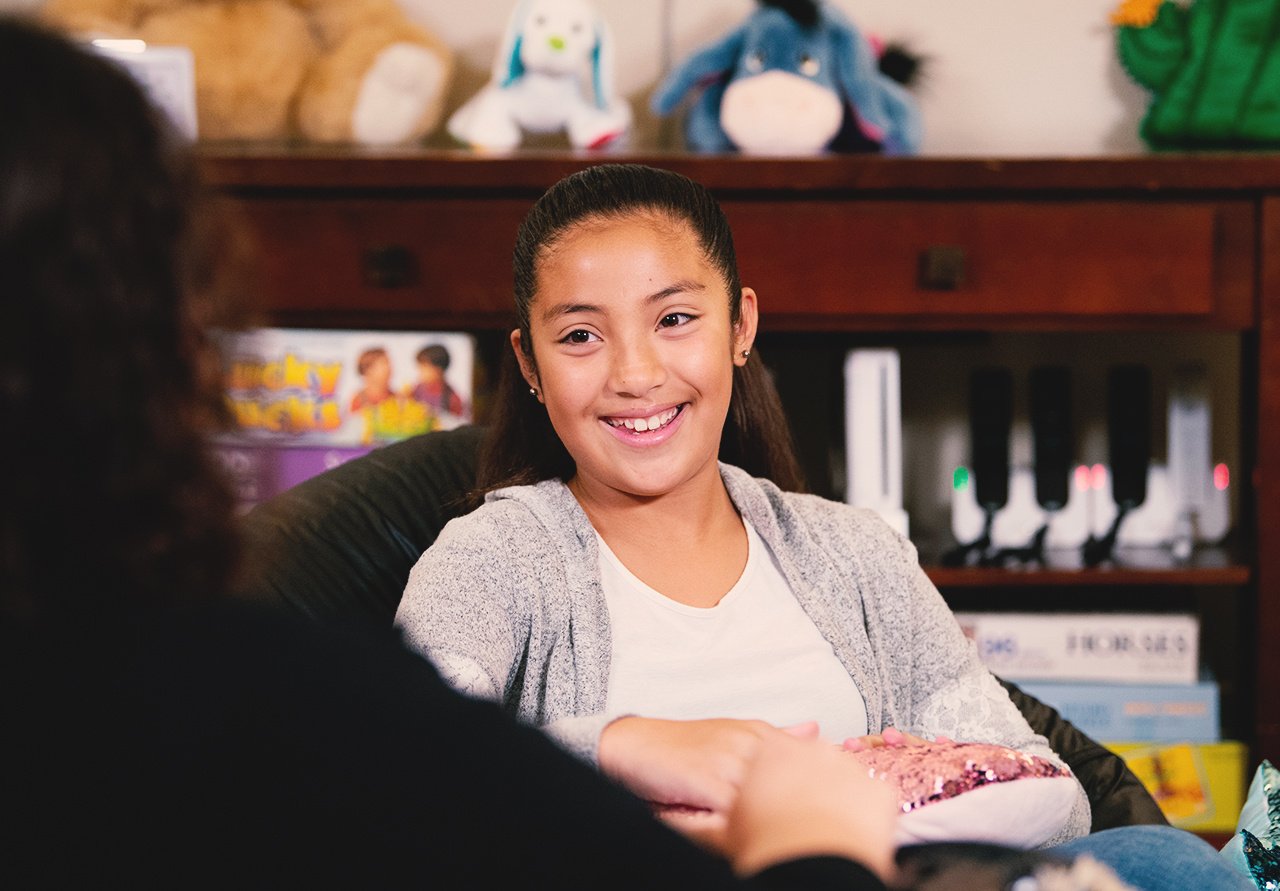.png)
Teens need a healthy home environment to feel safe, heard, and free to be themselves. While physical safety and basic needs are foundational, a truly supportive home creates emotional security through consistent boundaries, respectful interactions, and spaces where teens can express themselves authentically.
Communication and interpersonal relationships play a big role in how teens feel about their home environment. Adults who model healthy behaviors can help teens feel more comfortable at home.
How Your Home Affects Your Mental Health
Adults and teens often experience similar feelings in response to their home environment. Excessive noise, clutter, and a lack of personal space can cause agitation and anxiety and make concentration difficult.
A home doesn’t need to be perfect to be supportive, but fostering an organized environment and establishing boundaries around noise levels and personal space can help improve mental well-being.
Teens have little control over where they live or their home environment. As an adult, being mindful of environmental effects on mental health enables you to shape experiences that support teens through adolescence while preparing them for a balanced and meaningful future.
Make Home a Place They Want to Be
Home influences how teens manage stress, build confidence, and bond with others. While a home should be a place to relax and recharge, it can become a source of stress when conflict occurs.
Here are some ways adults can reduce interpersonal friction at home:
Lead by Example
Show respect in your interactions with your spouse or partner, your neighbors, and guests in your home. Even in a conflict, maintain a calm tone, avoid interrupting or shouting, and acknowledge other opinions (even if you disagree with them).
Set and Enforce Behavioral Expectations
Make sure everyone in your household understands and abides by your standards. If “no shouting” is a rule in your home, it should apply to all children and adults.
When family dynamics break down, seeking family counseling may be the best way to resolve conflict and identify unhealthy patterns. These issues can be complicated to work through without professional help.
Practice Self-Care
Take care of yourself. For example, prioritizing sleep helps regulate mood and energy levels, making you more resilient to everyday annoyances that could blossom into conflicts.
When you’re feeling frustrated, use healthy coping strategies like walking to clear your head, deep breathing exercises, or journaling to process your emotions. Talk to your teen about how you engage in these activities when you need a reset, and encourage them to do the same.
Set Fair Rules and Consequences
Fair, predictable consequences help teens understand the connection between actions and outcomes. Harsh punishments or inconsistent discipline can cause teens to push back instead of learning from their mistakes.
A penalty should match the offense. For example, if a teen misses curfew, requiring them to come home an hour before curfew the next night is a fair punishment, but grounding them for two weeks might be excessive.
Provide Privacy
Teens need a private place to unwind, which is usually their bedroom. Whether listening to music, playing video games, or just taking a break from distractions, having a place to call their own helps them relax. But if adults enter without knocking or make changes to that space without asking, teens may feel they have no privacy, or their parents don’t trust them.
Create Structure
Consistency and structure in a teen’s life can make them feel secure when other aspects of their life feel uncertain. Here are some simple ways to strengthen structure at home:
Have a Daily Ritual
Schedules get hectic, and setting regular times for dinner or homework isn’t always realistic. However, making time for a short ritual—like a 15-minute chat with your teen before school every morning—can create a sense of stability for them.
Give Teens Independence
Set guidelines for teens without micromanaging. For example, if you want your teen to limit screen time to two hours max on weeknights, you could let them decide how they use those two hours—watching TV or a movie, playing video games, surfing TikTok, or any combination of those activities.
Assign Responsibilities
Contrary to what teens might think, household chores are not cruel and unusual punishment. When you assign chores to a teen, explain that these are tasks they’ll have to do as an adult, and set some expectations about what tasks entail. “Clean the bathroom once a week” isn’t specific enough. Add structure, like, “Clean the toilet and sink every Saturday, and clean the shower every other Saturday.”
Build Trust Through Open Communication
Encouraging open discussion makes it easier for teens to share their thoughts and feelings. Regular check-ins with your teen can help you detect potential issues, like trouble with schoolwork, feelings of isolation, and unhealthy peer relationships.
Show Interest
Show teens patience and understanding when they talk about difficulties. Avoid statements like, “I’m sure it’ll be fine.” Practice active listening with statements like, “I understand why that’s upsetting,” and asking follow-up questions to gather more information.
Avoid interjecting with advice unless they ask for it. Sometimes teens just want to vent and know that their thoughts and feelings are being heard.
Create Ways to Connect
Conversation may be easier for teens when they don’t feel pressured to engage. Going for walks or cooking together can be a good way to break the ice and stimulate low-pressure conversation.
Share Your Experiences
Family members often spend a lot of time apart, and when you work full-time, that’s a big part of your life that your teen knows little about. Feel free to share experiences about your day, your coworkers, or how you’ve managed interpersonal challenges at work.
When to Ask for Help
Even when you work hard to create a healthy home environment, teens may have difficulty opening up and engaging. You may wonder if you’re witnessing normal teen behavior, or if their reluctance to engage is a sign of a larger problem. The truth is, some teens don’t want to share everything with their parents and are more comfortable talking to a therapist.
If your teen is struggling, it’s OK to ask for help. Rawhide Youth Services offers a variety of counseling and therapy options for Wisconsin teens and families. Schedule an appointment today for compassionate, evidence-based counseling. We’re here to help.










